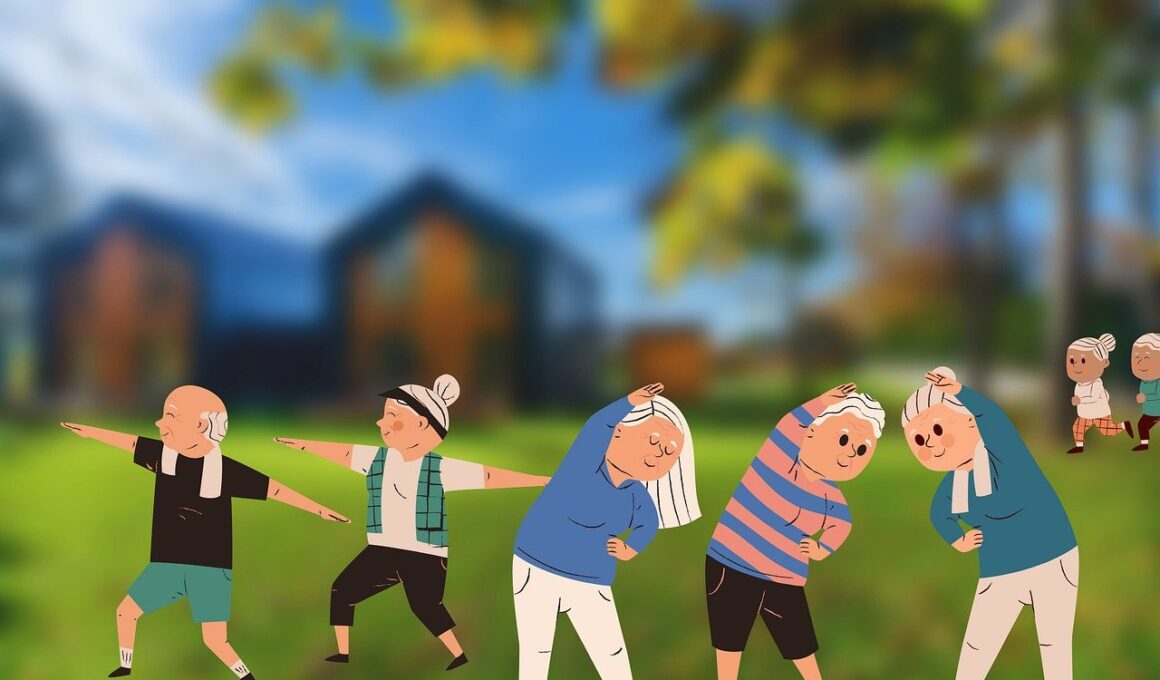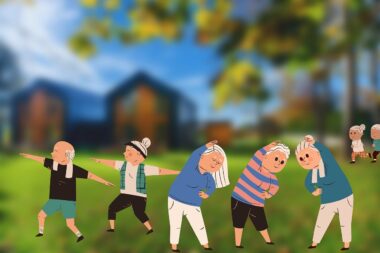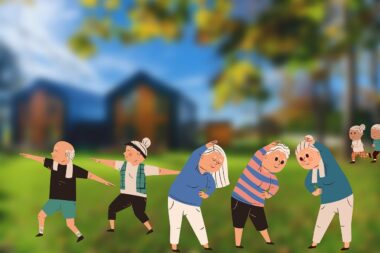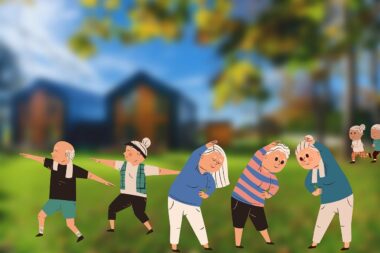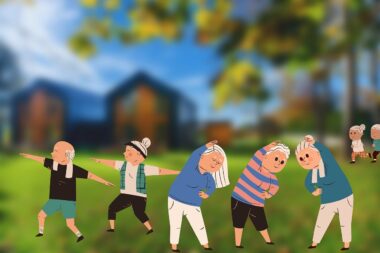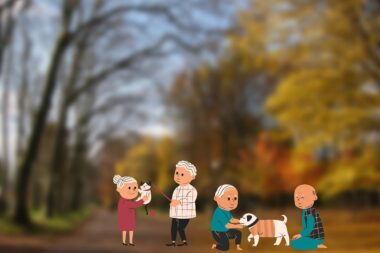The Psychological Benefits of Physical Therapy in Senior Care
Physical therapy offers numerous psychological benefits crucial for seniors. Engaging in physical therapy can significantly enhance the emotional well-being of older adults. During these sessions, physical therapists encourage not only physical improvement but also mental resilience. Therapy sessions often foster a positive mindset among participants, who may otherwise feel isolated or limited. The social interaction inherent in therapy builds confidence, allowing seniors to express themselves freely. These interactions can lead to friendships and a supportive community atmosphere. Moreover, improved mobility resulting from therapy enhances self-esteem, empowering seniors in their daily lives. Physical therapists also play a key role in educating seniors about their bodies, reducing fear related to injury. This confidence is vital in promoting independence, making seniors feel less dependent on others. Additionally, physical therapy can serve as a proactive approach to mental health, reducing symptoms of anxiety and depression. With structured routines established during therapy, seniors often report feeling a greater sense of accomplishment, which correlates with mental buoyancy. Thus, physical therapy emerges as a comprehensive solution, addressing both physical and psychological challenges faced by the elderly population.
Physical therapy provides educational opportunities for seniors regarding their health. As they engage in therapy, they learn about movement mechanics, injury prevention strategies, and rehabilitation techniques. Understanding these concepts promotes mindfulness about their physical capabilities and limitations. These knowledge-sharing aspects also work towards reducing feelings of anxiety associated with aging and fragility. Through explanations and demonstrations, physical therapists empower seniors to take charge of their physical health, fostering autonomy. Educational insights can transform how seniors perceive their physical challenges. They move from seeing exercise as daunting to viewing it as a journey of self-growth. This cognitive shift is incredibly liberating for seniors, motivating them to embrace new activities with enthusiasm. Furthermore, physical therapy sessions include discussions about lifestyle modifications. Alongside physical improvement, therapists often suggest nutritional adjustments, ultimately leading to better overall health. Mental clarity and emotional stability are enhanced through these lifestyle changes. Seniors who feel in control of their health outcomes tend to exhibit reduced stress levels and improved life satisfaction. The synergy between body and mind is vital, and physical therapy serves as a bridge connecting physical rehabilitation and psychological wellness among seniors.
Community and Support
Participating in physical therapy fosters a sense of community among senior clients. As they schedule regular sessions, they often encounter familiar faces, establishing rapport with fellow attendees and therapists. This social network becomes a reassuring element, creating bonds that extend beyond the therapy space. It lays a foundation of camaraderie that significantly impacts seniors’ psychological health. They often feel more motivated to attend sessions when they know they will meet peers who share similar experiences. Support groups emerge naturally within these environments, where seniors exchange stories and tips for managing their physical challenges. Additionally, these interactions alleviate feelings of loneliness or isolation prevalent in many older adults. Emotional support becomes readily available as clients uplift each other during therapy. Consequently, within this supportive atmosphere, seniors feel valued and understood. Seeking help becomes less intimidating when surrounded by others who are navigating similar concerns. This nurturing environment influences how seniors engage with their fitness goals, and often, they approach them with renewed vigor. Such community spirit is indispensable, promoting not only better attendance but also increasing the likelihood of achieving desired therapy outcomes.
Another psychological benefit of physical therapy in senior care is the realization of personal achievements. As seniors progress through their physical therapy routines, they witness tangible improvements in their strength and endurance. These small victories, whether walking a few extra steps or lifting a greater weight, can dramatically impact a senior’s morale. Celebrating milestones offers a sense of accomplishment that enhances self-worth and motivates continuous effort. Furthermore, physical therapists encourage feedback and self-assessment among clients, prompting seniors to take notice of their improvements and consider their strengths. The act of recognizing personal growth nurtures a growth mindset, essential in combating the negative thoughts often associated with aging. Therefore, seniors become active participants in their recovery journeys, focusing on what they can achieve rather than what they cannot. In turn, this empowerment acts as a natural antidepressant, fostering resilience amid life transitions. As seniors engage in self-reflection prompted by therapy, they can articulate their experiences and emotions more clearly. Consequently, the interplay of physical achievements and psychological growth culminates in a positive feedback loop, reinforcing the necessity of physical therapists within the senior fitness landscape.
Reducing Pain and Stress
Physical therapy is instrumental in helping seniors manage pain and stress effectively. Chronic pain can significantly impact an older adult’s emotional well-being, leading to diminished moods and isolation. Through targeted physical therapy techniques, seniors gain access to methods that alleviate discomfort and improve overall quality of life. Techniques such as manual therapy, acupuncture, and therapeutic exercises help to reduce pain sensations. As the physical discomfort decreases, the psychological burden often alleviates, allowing seniors to embrace more activities without fear. The cognitive aspect of pain management becomes apparent when clients learn relaxation techniques through therapy. Practices such as deep breathing and visualization can diminish tension significantly. Additionally, these sessions encourage mindfulness, helping seniors stay present, which reduces anxiety levels. As physical therapists guide clients through structured plans to address their pain, they also integrate coping strategies. Strengthening the connection between body and mind, these strategies equip seniors with tools to manage discomfort independently. This newfound control leads to greater contentment and emotional stability. A reduction in stress directly correlates with increased engagement in social and leisure activities, positively impacting overall well-being.
The relationship between physical therapy and enhanced sleep patterns is yet another psychological benefit for seniors. Many older adults struggle with insomnia or restless sleep, which can exacerbate mental health issues. Engaging in regular physical therapy routines helps improve overall sleep quality through increased physical activity. As seniors engage in strengthening and stretching exercises, their bodies require restful recovery periods, promoting deeper sleep cycles. Additionally, therapists often emphasize the connection between plateaus in physical activity and restful sleep. Seniors who invest time in their physical health tend to experience a more balanced lifestyle overall. Consequently, their emotional resilience strengthens as they enjoy improved focus and tranquility. Furthermore, physical therapy sessions provide time for relaxation strategies such as guided imagery or meditation. These strategies are beneficial for creating tranquility before bedtime, allowing seniors to wind down effectively. As sleep quality improves, cognitive functions such as memory and concentration also enhance. Thus, seniors find themselves functioning better overall, motivating them to pursue more activities actively. From pain reduction to better sleep, the cumulative benefits of physical therapy enrich the lives of seniors profoundly.
Building a Sense of Purpose
Lastly, engaging in physical therapy helps seniors develop a renewed sense of purpose and motivation. Many older adults face the challenge of transitioning their roles post-retirement, causing feelings of loss and uncertainty. Inviting participation in therapeutic activities provides seniors with a structured environment to pursue meaningful goals. These goals might pertain to improving mobility, enhancing balance, or simply maintaining independence. The motivation to progress fuels daily engagement in activities, allowing seniors to feel more connected to their lives. Additionally, this sense of purpose is often linked to improving mental health outcomes. As seniors achieve their therapy targets, they experience a surge in self-confidence. The determination to commit to rehabilitation conveys an underlying message of resilience. Seniors often reflect on their capabilities, leading to personal empowerment and a proactive attitude toward aging. Moreover, positive reinforcement from therapists builds accountability, enhancing seniors’ commitment to their health. Physical therapy thus becomes an avenue through which seniors rediscover their individuality. This renewed purpose influences their overall happiness, fostering emotional stability and satisfaction during their golden years.
Conclusively, the intertwining of physical therapy with psychological benefits significantly enriches the lives of seniors. Mental health is a crucial aspect of aging, often overlooked in traditional fitness discussions. Engaging in physical therapy not only addresses physical challenges but also uplifts the emotional state of older adults. The multi-faceted impacts include the development of supportive communities, opportunities for personal growth, and avenues for pain management. Moreover, therapy promotes better sleep patterns and nurtures a renewed sense of purpose. These components combine to foster a healthier approach to aging, positively reshaping how seniors view their fitness journeys. In light of these psychological benefits, it becomes imperative to recognize the powerful role that physical therapists play in senior care. By emphasizing a holistic approach to well-being, these professionals create pathways for growth and resilience among seniors. The ultimate goal is not just to enhance physical capacity but also to ensure that seniors lead fulfilling, meaningful lives. As society continues to evolve, so shall the understanding of health, emphasizing the seamless interaction between physical and psychological fitness in senior living.
